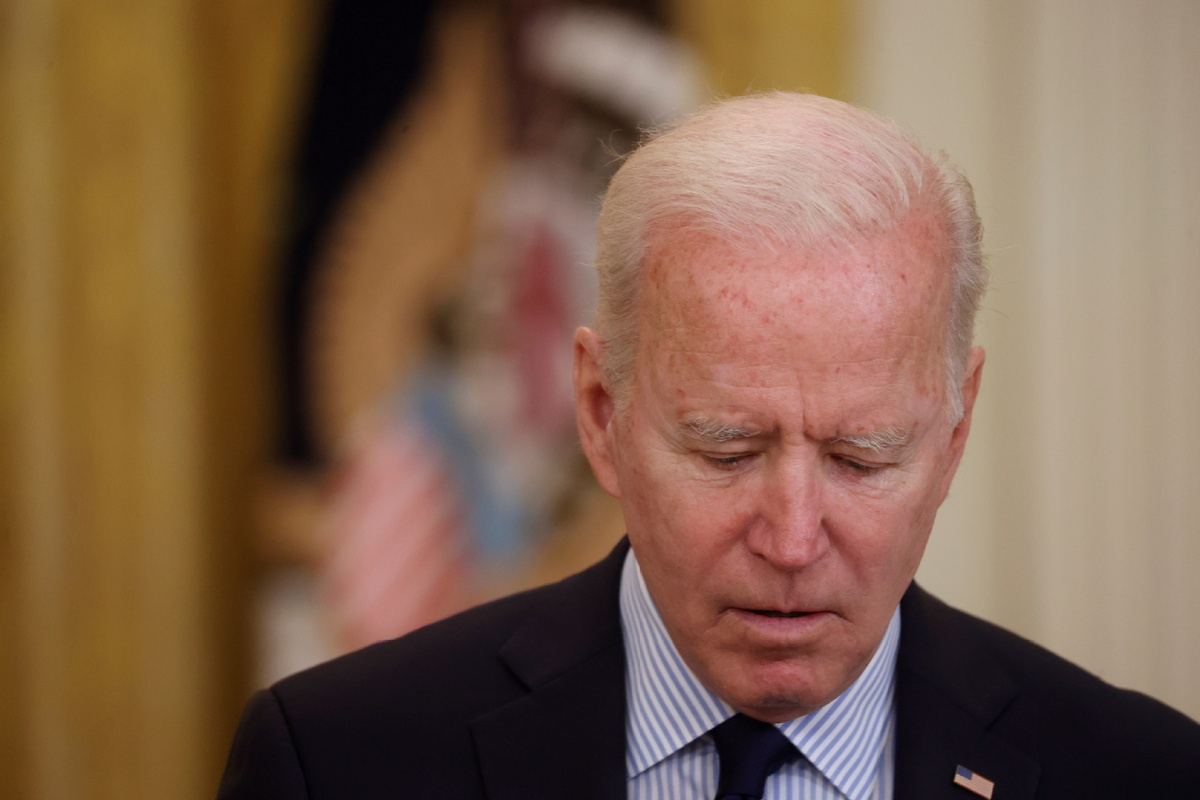US must fulfill climate vows to win world's trust
By Yang Pingjian | China Daily | Updated: 2021-11-09 07:12

Long before the ongoing UN Climate Change Conference began in Glasgow on Oct 31, US President Joe Biden vowed to restore the US' climate leadership through a "new climate deal".
However, considering the US' flip-flop on climate change in the past, Biden's remark cannot be taken at face value.
First, if Biden wants Washington to regain the global climate leadership, the US has to take responsibility for its huge cumulative greenhouse gas emissions and take concrete actions to mitigate their effects.
That carbon dioxide remains in the atmosphere for 100-150 years means CO2 emissions from the late 19th century continue to affect the climate system even today. So advanced Western countries, especially the US, that have been spewing millions of tons of greenhouse gases to propel their economy for the past one and a half century or more have a far greater responsibility to take corrective measures.
According to available data, about 1.5 trillion tons of CO2 have been discharged into the atmosphere since the Industrial Revolution, and the United States accounts for more than 400 billion tons of that, far more than any other country. Even in terms of per capita cumulative carbon emissions since 1850, the US' share is at least eight times that of China and dozens of times of India.
The US used its first-mover advantage to emit far more CO2 than any other country, amassing enormous wealth and becoming the world's largest economy, but it has not taken responsibility for all those emissions, let alone making efforts to mitigate their effects.
Therefore, to regain the global climate leadership, the US should first face up to its emissions history and compensate developing countries for limiting their scope for emissions and thus restrain their economic development, and making the poor and most vulnerable countries the worst victims of climate change.
Second, the US must abandon unilateralism and stop putting its own interests above those of the rest of the world. From Bill Clinton, George W. Bush and Barack Obama to Donald Trump, US presidents have treated global climate rules as a trifling matter.
But countries around the world came together at the UN climate conference in December 2015 to finalize the Paris Agreement. The Obama administration did ratify the Paris Agreement in September 2016-only for the Donald Trump administration to withdraw the US from the climate pact the next year, citing "unfair economic burden" on the US as the reason.
To be fair to Biden, as soon as he entered the White House, he signed the instrument to return the US back to the Paris Agreement. But that came with a rider that Washington would regain its leadership in global climate governance.
It is thus evident that the US always puts its own interests first and doesn't care much about international agreements and rules, or global interests. But without abandoning unilateralism, convincing the international community of the continuity of its climate policy and abiding by international rules, the US cannot expect to play a key role in global climate governance.
Third, the US must take concrete actions to mitigate the effects of climate change, because it is not only the largest cumulative emitter of greenhouse gases but also economically and technologically the most advanced country in the world. This is important because the US has not fulfilled its climate obligations till now. For example, it failed to reduce emissions by 7 percent by 2005 from the 1990 level-in fact, emissions from its energy sector rose by 19.2 percent from 1990 to 2005.
By failing to fulfill its global obligations and continuing to break international rules, the US has set a bad precedent for other developed countries. The US must realize that it can't continue business as usual while expecting to lead the global fight against climate change.
Fourth, since different countries are in different stages of development, they should set their own emissions reduction targets depending on their economic and technological prowess. That is precisely what is meant by common but differentiated responsibilities, which was formalized as international law at the UN Conference on Environment and Development at Rio de Janeiro in 1992.
When it comes to reducing emissions, the US does not practice what it preaches. Accusing other countries of wrongdoing or inaction cannot solve the climate problem either in the US or the rest of the world; on the contrary, it would undo the hard-won achievements of cooperation. Also, the US should stop doubting and challenging the global climate governance framework, abandon zero-sum games, and refrain from pointing fingers at others to hide its own failures and breaching of global climate rules.
As the largest developed country in the world, the US would do better to cooperate with the largest developing country, China, to address global and common challenges, such as climate change. Such cooperation should be based on equality and fairness, and the US should withdraw all trade terms that don't conform to green development, lift restrictions on the import of new energy products from China, and allow the export of green, low-carbon, clean energy and green equipment to China. For instance, the US cannot demand that China reduce its coal production on the one hand and export more coal to China on the other, and impose sanctions on Chinese photovoltaic companies in a naked display of unilateralism and hegemonism.
Considering that climate change poses a threat to people around the world, it is imperative that all countries work together on the principles of equity, and common but differentiated responsibilities.
The international community welcomes the US' return to the global climate governance framework, but to win the trust of other countries the US has to fulfill all its global climate obligations and provide financial and technological support to developing countries to help them adapt to and mitigate climate change.
The author is a researcher at the Chinese Research Academy of Environmental Sciences.
The views don't necessarily reflect those of China Daily.
If you have a specific expertise, or would like to share your thought about our stories, then send us your writings at opinion@chinadaily.com.cn, and comment@chinadaily.com.cn.
























